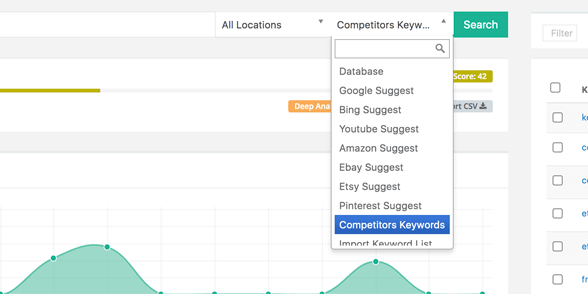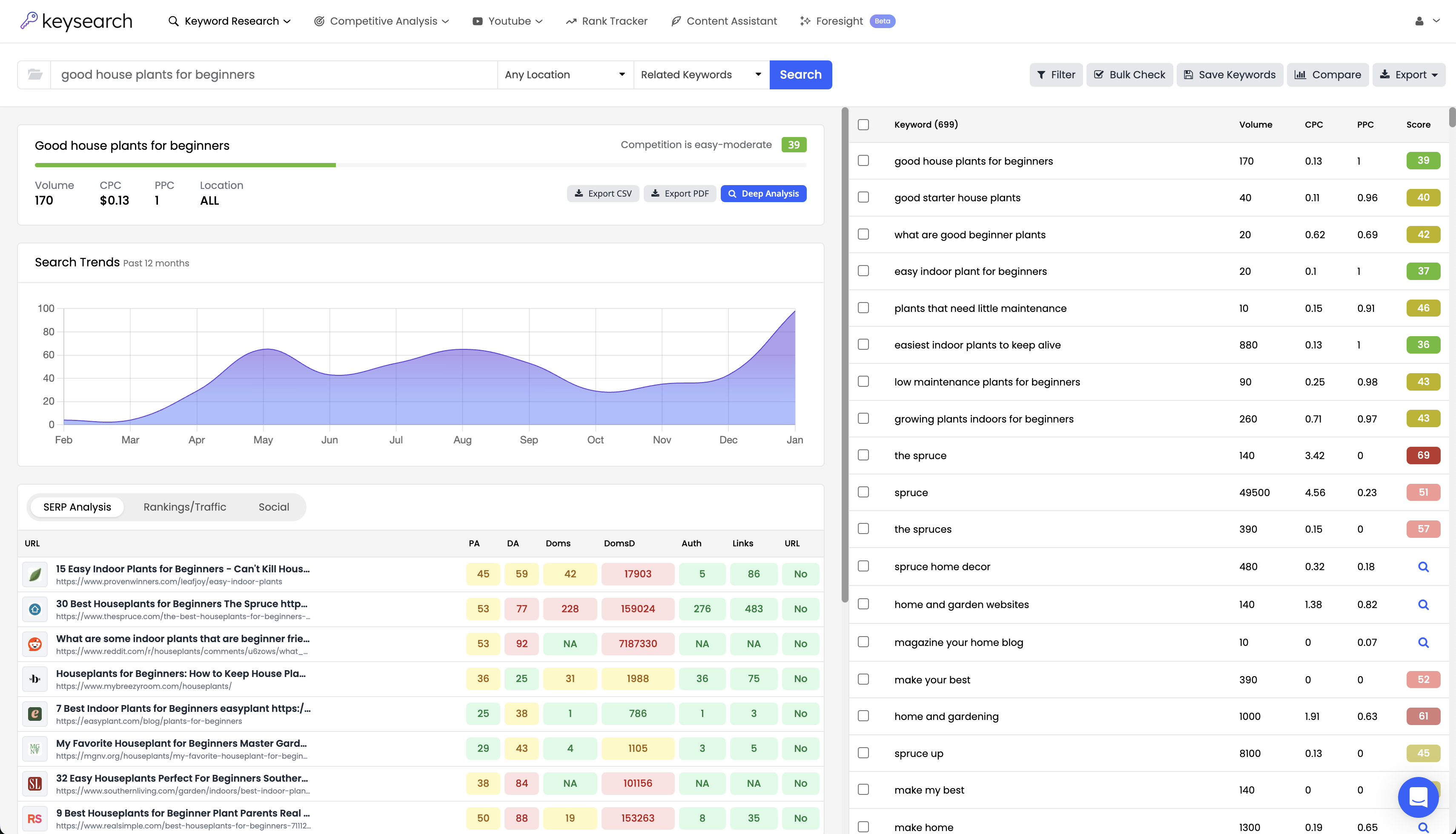Driving more traffic to our website is the ultimate goal. We can play around with all of the SEO tools we want and do all of the content marketing possible but in the end, we need to be targeting the right keywords. This is why having the ability to identify your competitor’s keywords can be so incredibly important.
One of the most underused and highly powerful features of Keysearch is just that, the ability to find and analyze keywords your competitors are already ranking for. Having access to this type of competitive analysis can give you an incredible leg up on your competition.
While most keyword research tools can help you locate some good long-tail keywords, many of them don’t have the ability to really dive into competitor keyword research which is where a lot of the keyword “gold” lies. Even Google Keyword Planner can come up short here.
How to Find Competitor’s Keywords
Since many Keysearch users are unaware of how powerful this feature is I thought I’d do a quick overview of some of the benefits.
For those who don’t know where to find this feature, there are a few different ways within Keysearch where you can access this data. If you don’t have a Keysearch account go to the homepage and signup now.
The first way is with the Explorer feature. Just type in any domain into the search bar and it will load up an overview of all of your domain’s stats. From there you can just click the “View Keywords” button in the Organic Keywords section of the page.
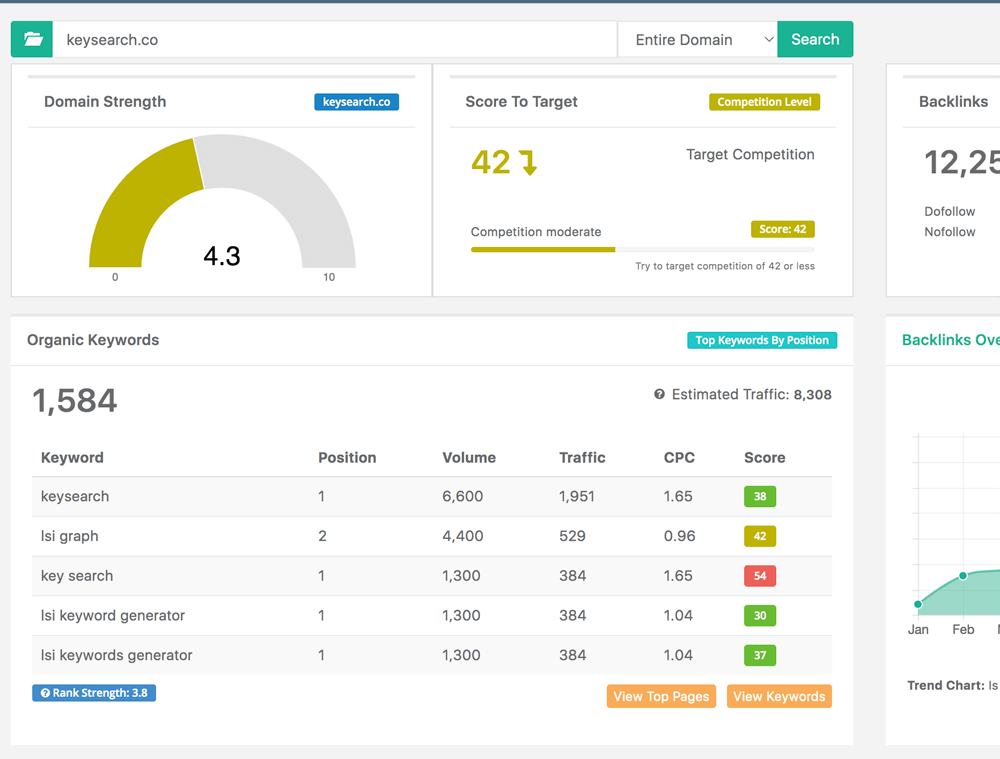 This will bring up a popup menu showing the ranking keywords for any domain or webpage that was searched. You will also be able to see which organic search position those keywords are ranking for. You can then sort the data by position, search volume, CPC, etc… It will also show you which URLs are ranking for those specific keywords and the keyword difficulty score if it exists in our database.
This will bring up a popup menu showing the ranking keywords for any domain or webpage that was searched. You will also be able to see which organic search position those keywords are ranking for. You can then sort the data by position, search volume, CPC, etc… It will also show you which URLs are ranking for those specific keywords and the keyword difficulty score if it exists in our database.
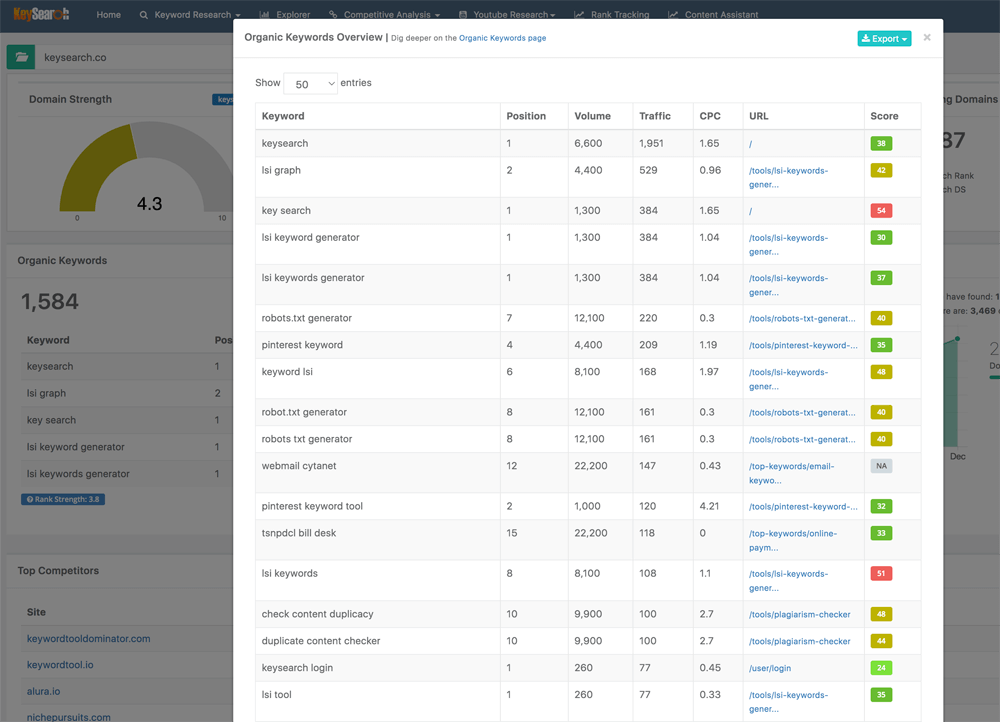
The second way to see your competitor’s keywords is by using the Organic Keywords page. This page is basically a bulked-up version of the View Keywords popup within the Explorer tool. It gives you more in-depth filtering options (by rank, traffic, volume) that let you dive further into your competitor’s keywords. This is really the page you want to use to get the most data about your competitor’s keywords.
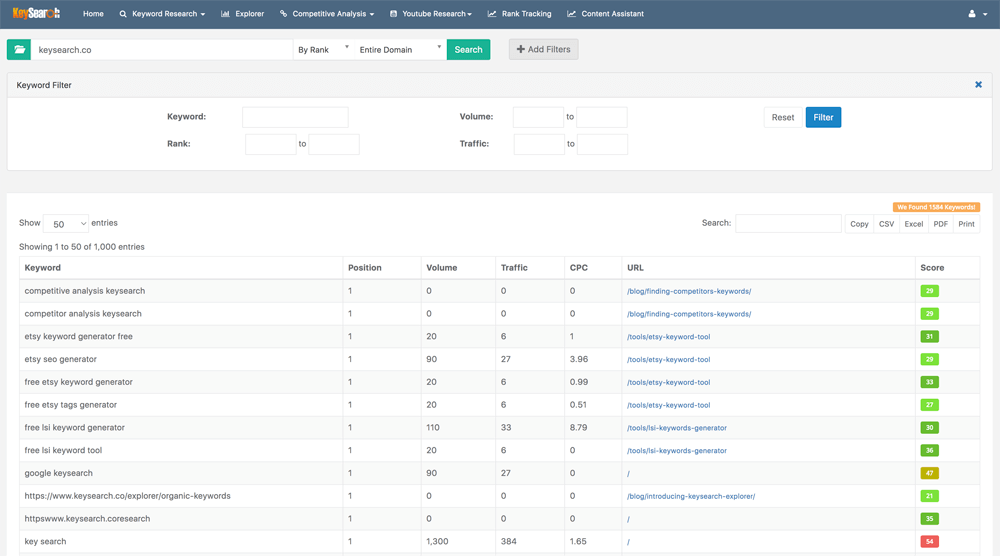
The third way to see your competitor’s keywords is within the Keyword Research section of our keyword tool. You can change the drop-down menu showing the search type to the “Competitors Keywords” option.

What this feature will do is go out and find keywords that your competitors are already ranking for within Google. It will also only return keywords that have search volume. Keywords that have no search volume won’t be included since there is not much value for those keywords.
The benefit of searching on the Keyword Research page is you can then easily check the keyword difficulty and SEO competition for any of the keywords that are missing the score one at a time or in bulk. Giving you a way to do your competitor keyword analysis all in one place. This makes finding some easy-to-rank keywords a breeze.
A 4tth way you can access this data is by using our Competitor Gap Tool to compare different competitors and find common keywords that their sites are ranking for and which your site is not. Just enter which competitor domains you want to compare in the left search boxes and your domain in the right search box.
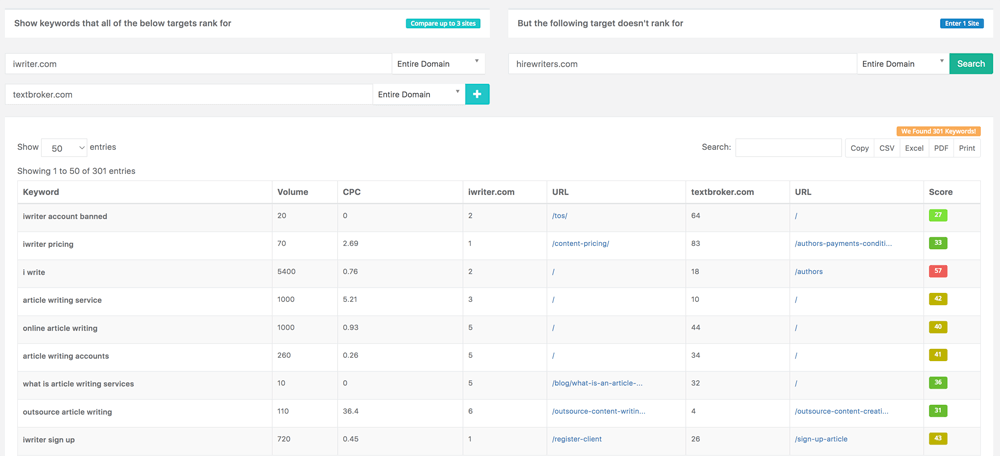
This is an incredibly useful tool. If you want to see more specifics about this feature you can read about it here: Competitor Gap Feature Overview
Finding Hidden Gem Keywords
Now let’s talk about why being able to spy on your competitor’s keywords is such a powerful feature. Knowing what keywords your competitors are ranking for is a great way to brainstorm and find other keywords you should be targeting. No matter how much keyword research you do, you’ll never uncover all of the hidden gem keywords that are out there. So why not use your competitors to help you along? Nothing wrong with having the inside track on great keywords.
You’ll be surprised at how many keywords and topics you may have never thought of that your competitors are already bringing in traffic for. This may also open your eyes to smaller niches within your broader niche that you didn’t even know existed. It gives you a window into what is possible for your site which is a great way to start broadening the topics you are targeting and get even more ideas flowing.
Giving Google What it Wants
These keywords also will usually be highly relevant to your niche. It’s like having a direct line into Google’s search engine algorithm. If these are keywords that your competitors (who are already ranking well on Google) are also ranking for, then this is giving you insight into the type of content Google is looking for within this niche.
So by adding more content targeting these keywords you’re not only going to have the opportunity to bring in more traffic but you’ll also be giving Google what it wants. Doing this is always going to help your site tremendously in the long run. Not just for these newly targeted keywords but also for the authority of your site, helping to boost all of your rankings. These are basically low-hanging fruit keywords that Google is begging you to take!
Keywords That We Can Rank
Another thing to factor in is that unless your competitors are big-time authority sites, then we have just come across a ton of keywords that we CAN rank for. If your competitors can rank for them, you can too. This can really expedite the process of bringing in free traffic through Google. We have a list of keywords that CAN be ranked. So rather than wasting time on keywords we have no idea whether we will ever rank for, we can use our competitor’s keywords to show us the way to some easy rankings. Which in turn is free traffic!
Not to say that every keyword your competitors are ranking for will be a piece of cake to rank, but we will have a general idea of what is possible. This way we can build a better overall plan of what’s worth targeting and what’s not. We can also see if our competitors are ranking any of the tougher keywords we may have been after. This will also give us a better idea as to whether those are even worth trying for. If none of our competitors are able to pull in traffic for those keywords do we stand a chance?
Final Thoughts
Spying on your competitor’s keywords is going to give you a much broader picture of your niche. Many times we all have a tendency to think we are on the right track as to what to target, but now we have it all laid out right in front of us for the taking. There is no reason to let your competitors get all this free traffic that can easily be yours too. Why not take advantage of such incredibly powerful information!
- How to Do Keyword Research for Free: Best Free Keyword Research Tools in 2024 - December 13, 2024
- Benefits of Keyword Clustering: Why is it Important to Group Relevant Keywords Together? - December 13, 2024
- What is Keyword Density in SEO and Its Importance - December 13, 2024

